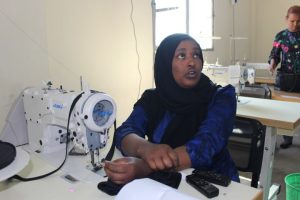
The World Food Day 2024 event recently spotlighted the right to nutritious, safe, and affordable foods amid global conflicts, climate shocks, and rising costs. These challenges are making healthy diets unaffordable for millions.
Despite these global difficulties, Ethiopia has made significant strides in combating malnutrition. The government, in collaboration with development partners, is expanding access to nutrition for mothers, children, and pregnant women. A new food system document was introduced to address nutrition challenges, though malnutrition remains prevalent.
Knorr’s latest campaign, themed #GreenGursha, promotes incorporating greens into Ethiopian meals through the cultural tradition of Gursha-sharing food by hand. This initiative celebrates Ethiopian culinary heritage and emphasizes the importance of healthy eating.
According to Almetsehay Zergawi, Head of the Ministry of Health’s Food and Nutrition Office, Ethiopia faces significant nutritional challenges despite its agricultural potential. “Thirty-nine percent of children under five experience stunting due to chronic undernutrition,” she reported. In response, the government has introduced food-based dietary guidelines and a new food system strategy involving 15 public institutions to address the issue.
Almetsehay stressed the importance of agriculture in improving nutrition and described food as medicine. “The Ministry of Agriculture is committed to working closely with partners like Unilever to promote healthier eating habits,” she said. Almetsehay also emphasized behavioral change as key to overcoming malnutrition, encouraging meals containing at least four food groups per serving and six food groups daily as recommended by the GreenGursha campaign.
Nutritionist and consultant Abenet Tekele cited a study from the Ethiopian Public Health Institute, which revealed that 75% of children under two have no access to fruits and vegetables. He also pointed to research showing that over 60% of people’s emotions are directly linked to their diet. Deficiencies in essential vitamins, such as Vitamin D, affect 95% of the population, leading to issues like depression, fatigue, and dizziness.
Abenet highlighted the importance of foods rich in folate, magnesium, and vitamins D, B, and C to maintain physical and mental health. He urged greater attention to pregnant women, noting that folate deficiency affects 50% of women, which can lead to serious birth complications. Ensuring access to vegetables and fruits could significantly improve maternal and child health outcomes, he added.
Kidist Woldesenbet, Head of the Ministry of Health’s Nutrition Desk, reaffirmed the government’s commitment to implementing the National Food and Nutrition Policy. Supported by a 10-year strategic plan, the policy aims to foster a healthy, productive society. Partnerships with the private sector, including Unilever, are pivotal to the campaign’s success.
Unilever Africa Nutrition Platform Director Selamerchristos Belay expressed excitement about the campaign’s positive reception. “This initiative showcases our commitment to promoting green vegetables in Ethiopian cuisine and celebrating the richness of Ethiopian culinary traditions,” he said.
Knorr enlisted popular comedian and TV personality Eshetu Melese to further promote the campaign. His humorous approach resonated with audiences, inspiring them to embrace greens as part of their daily meals. “Gursha with Greens” became a memorable slogan of the event, encouraging people to see vegetables as both delicious and essential to their diets.
BY BETELHEM BEDLU
The Ethiopian herald October 27/2024





